Tuesday, March 31. 2009
The "Great Conversation" Begins At Home: U. Michigan's Open Access Week
 Following University of Michigan's Library's Open Access Week
Following University of Michigan's Library's Open Access Week Molly Kleinman has blogged Lessons from Open Access Week
Some Responses:
Question: Surely there was some discussion of Michigan congressman John Conyer's Bill HR 801 attempting to overturn the NIH OA mandate?
Comment 1: Whether one accepts the definition of the two kinds of Open Access ("gratis" and "libre") or one prefers to deny free access the honorific of "open," the fact is that we do not even have free online access (whatever we choose to call it), and that asking nonproviding authors to do more, and asking institutions and funders to mandate that they do more is even more difficult than just getting them to provide the free online access, which only 72 institutions and funders -- out of perhaps 10,000 worldwide -- are so far doing. (Without even that, it's all just a name-game.)
(Whether there is really any burning need for "re-use rights" for the verbatim texts of peer-reviewed research journal articles (as opposed to research data, or Disney cartoons) is perhaps also worth giving some more thought.)
Comment 2: For how students can help OA, see: "The University's Mandate To Mandate Open Access."
Comment 3: Before getting too caught up in the theory of the "Great Conversation," it might be a good idea to make sure free access (at the very least) is provided to its target content -- by mandating OA (for example, at University of Michigan!)
Stevan Harnad
American Scientist Open Access Forum
Saturday, March 28. 2009
On Throwing Money At Gold OA Without First Mandating Green OA, Again
 Pre-emptive Gold Fever seems to be spreading.
Pre-emptive Gold Fever seems to be spreading. Following hard on the heels of University of California's Gilded New Deal with Springer -- UC subscribes to the Springer fleet of journals for an undisclosed fee, but, as part of the Deal, UC authors get to publish their articles as Gold OA for free in those same Springer journals -- now Universities UK (UUK) and the Research Information Network (RIN) are jointly dispensing advice on the payment of Gold OA fees (which is fine) but without first giving the most important piece of advice:
A university should on no account spend a single penny on Gold OA fees until and unless it has first adopted a Green OA mandate to deposit all of its own refereed journal article output in its own institutional repository.

 There is still time for UUK and RIN to remedy this, by prominently setting the priorities and contingencies straight. I fervently hope they will do so!
There is still time for UUK and RIN to remedy this, by prominently setting the priorities and contingencies straight. I fervently hope they will do so!(Peter Suber is expressing the very same hope, but in his characteristically gentler and less curmudgeonly way.)
On Mon, Mar 30, 2009 at 4:30 AM, David Prosser, Director of SPARC-Europe, wrote in the American Scientist Open Access Forum:Stevan HarnadAs all of the UK research councils, as well as some of the major UK funding charities, have green mandates in place I don’t see how this can possibly be described as ‘pre-emptive gold fever’.I'm so glad you said that, David! Here is the very specific reply that should fully elucidate this question, which cuts to the very heart of what is at issue:
(1) There are two kinds of Green OA mandates: funder mandates and university mandates.
(2) Yes, the UK is the only country in the world in which all 7 of its national research funders (plus 7 more charities and intercouncils) mandate Green OA (and that is just wonderful: a global inspiration and example in every respect!).
(3) However, UK funder mandates only cover funded research output.
(4) UK university (and research institution) mandates, in contrast, cover all UK research output, funded or unfunded, across all fields.
(5) And the UUK/RIN advice on Gold OA funding was from and to UK universities, not funders.
(6) Most UK universities do not yet mandate Green OA. (Only 6 UK universities plus two departments do -- although that is still the largest number of university mandates of any country in the world today!).
(7) Therefore my point -- that on no account should funding Gold OA be recommended until and unless Green OA has been mandated -- stands, for the intended recipients of the UUK/RIN advice: UK universities.
(I might add that even funding councils that mandate Green OA for the research they fund can help more by stipulating that the default locus of the mandated Green deposit should be the fundee's own institutional repository -- from which it can be exported/harvested to central repositories if desired -- rather than mandating direct central deposit. That creates a synergy between the two kinds of mandates, with the funder mandates encouraging and facilitating the adoption of university mandates at each of the fundees' institutions, so as to cover their unfunded research output too.)
American Scientist Open Access Forum
Spain's 3rd and 4th Green OA Mandates, Planet's 71st and 72nd
 A second university mandate (Universidad Carlos III de Madrid) plus a second funder mandate (Madrid Autonomous Community) from Spain, raising the worldwide total of Green OA self-archiving mandates to 72!
A second university mandate (Universidad Carlos III de Madrid) plus a second funder mandate (Madrid Autonomous Community) from Spain, raising the worldwide total of Green OA self-archiving mandates to 72!¡Viva España!
Friday, March 27. 2009
Richard Poynder Interviews Helene Bosc: OA's French Connection
 One more of Richard Poynder's revealing and insightful OA Interviews, this time of France's first and foremost OA champion, Hélène Bosc.
One more of Richard Poynder's revealing and insightful OA Interviews, this time of France's first and foremost OA champion, Hélène Bosc.For the full Poynder/Bosc interview, click here.
Peter Suber, writes:
"This is another richly textured interview, unearthing details about the early history of OA, OA in France, OA in Europe, and the career of one of Europe's first and most influential OA activists.... It's difficult to excerpt, but here's a little to whet your appetite..."Here are some excerpts from Peter's excerpts:
Former INRA librarian, [convenor for the EuroScience Working Group on Science Publishing,] and passionate champion of Open Access (OA) in France, Hélène Bosc began advocating for OA in 1995, before the term even existed...
Like other librarians who have embraced OA, Bosc's starting point was the so-called serials crisis....
RP: So how would you present the case for self-archiving mandates both generally, and within the context of France?
HB: Mandates are necessary to fill up repositories. All the author surveys and outcome studies that have been undertaken worldwide show this to be so, including studies in France: In a study I did, for instance, I showed that by assisting researchers to archive Ifremer has managed to capture 80% of recently published papers in the institution's repository, Archimer. By contrast HAL has captured only 10-15 % of French research output....
RP: How would you describe France's take-up of OA as compared to other Western countries?
HB: As we said, HAL was created over seven years ago, and following the signing of the protocole d'accord in July 2006, all French researchers were supposed to deposit their publications in HAL. That would seem to suggest that we were ahead of other countries, and yet today we are not: In spite of our technical lead, HAL has achieved the global default deposit rate of only 10-15 %....
RP: What is at stake?
HB: What is at stake is that if France wants to be in the research vanguard, it must embrace OA quickly, before all the other countries pull ahead.
My view is that as the first French universities see the deposit rate in their repositories approach 100% they will understand the OA citation advantage, and start to benefit from all the other advantages provided by OA....
OA and P2P: The Similarities and Dissimilarities
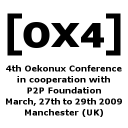 Here is the Quicktime Movie of:
Here is the Quicktime Movie of: "On the affinities and disaffinities among free software, peer-to-peer access, and open access to peer-reviewed research."a talk by Stevan Harnad on March 26 at:
Free Software and Beyond: The World of Peer Productionthe 4th Oekonux and P2P Foundation Conference. Manchester, UK, 27-29 March 2009.
SUMMARY: Free/Open Software (notably the first Free Software for creating OAI-compliant Open Access Institutional Repositories, EPrints, created in 2000, distributed under the GNU license, and now used worldwide) has been central to the growth of the Open Access Movement.
However, there are also crucial distinctions that need to be made and understood, among the movements for (1) Free/Open source software, (2) Open Access (to peer-reviewed research), (3) P2P file-sharing, (4) Open Data, (5) Creative Commons licensing, and (5) Wikipedia-style collective writing. Open Access (OA) is focussed primarily on refereed research articles.
The crucial distinctions revolve mostly around (a) the fundamental difference between author giveaway vs. non-giveaway work and (b) the functional differences between the re-use/re-mix/re-publication needs for peer-reviewed research article texts on the one hand, and data, software and other kinds of digital content on the other.
Thursday, March 19. 2009
The Need to Cross-Validate and Initialize Multiple Metrics Jointly Against Peer Ratings
(1) Citation counts are only one (though an important one) among many potential metrics of research performance.
(2) If the RAE peer panel raters' criteria for ranking the universities varied or were inconsistent between RAE 2001 and RAE 2008 then that is a problem with peer ratings rather than with metrics (which, being objective, remain consistent).
(3) Despite the variability and inconsistency, peer ratings are the only way to initialise the weights on metrics: Metrics first have to be jointly validated against expert peer evaluation by measuring their correlation with the peer rankings, discipline by discipline; then the metrics' respective weights can be updated and fine-tuned, discipline by discipline, in conjunction with expert judgment of the resulting rankings and continuing research activity.
(4) If only one metric (e.g., citation) is used, there is the risk that expert ratings will simply echo it. But if a rich and diverse battery of multiple metrics is jointly validated and initialized against the RAE 2008 expert ratings, then this will create an assessment-assistant tool whose initial weights can be calibrated and used in an exploratory way to generate different rankings, to be compared by the peer panels with previous rankings as well as with new, evolving criteria of research productivity, uptake, importance, influence, excellence and impact.
(5) The dawning era of Open Access (free web access) to peer-reviewed research is providing a wealth of new metrics to be included, tested and assigned initial weights in the joint battery of metrics. These include download counts, citation and download growth and decay rates, hub and authority scores, interdisciplinarity scores, co-citations, tag counts, comment counts, link counts, data-usage, and many other openly accessible and measurable properties of the growth of knowledge in our evolving "Cognitive Commons."
Brody, T., Kampa, S., Harnad, S., Carr, L. and Hitchcock, S. (2003) Digitometric Services for Open Archives Environments. In Proceedings of European Conference on Digital Libraries 2003, pp. 207-220, Trondheim, Norway.
Brody, T., Carr, L., Harnad, S. and Swan, A. (2007) Time to Convert to Metrics. Research Fortnight pp. 17-18.
Brody, T., Carr, L., Gingras, Y., Hajjem, C., Harnad, S. and Swan, A. (2007) Incentivizing the Open Access Research Web: Publication-Archiving, Data-Archiving and Scientometrics. CTWatch Quarterly 3(3).
Carr, L., Hitchcock, S., Oppenheim, C., McDonald, J. W., Champion, T. and Harnad, S. (2006) Extending journal-based research impact assessment to book-based disciplines. Technical Report, ECS, University of Southampton.
Hajjem, C., Harnad, S. and Gingras, Y. (2005) Ten-Year Cross-Disciplinary Comparison of the Growth of Open Access and How it Increases Research Citation Impact. IEEE Data Engineering Bulletin 28(4) pp. 39-47.
Harnad, S. (2001) Research access, impact and assessment. Times Higher Education Supplement 1487: p. 16.
Harnad, S. (2007) Open Access Scientometrics and the UK Research Assessment Exercise. In Proceedings of 11th Annual Meeting of the International Society for Scientometrics and Informetrics 11(1), pp. 27-33, Madrid, Spain. Torres-Salinas, D. and Moed, H. F., Eds.
Harnad, S. (2008) Self-Archiving, Metrics and Mandates. Science Editor 31(2) 57-59
Harnad, S. (2008) Validating Research Performance Metrics Against Peer Rankings. Ethics in Science and Environmental Politics 8 (11) doi:10.3354/esep00088 The Use And Misuse Of Bibliometric Indices In Evaluating Scholarly Performance
Harnad, S. (2009) Multiple metrics required to measure research performance. Nature (Correspondence) 457 (785) (12 February 2009)
Harnad, S., Carr, L., Brody, T. & Oppenheim, C. (2003) Mandated online RAE CVs Linked to University Eprint Archives: Improving the UK Research Assessment Exercise whilst making it cheaper and easier. Ariadne 35.
Harnad, S., Carr, L. and Gingras, Y. (2008) Maximizing Research Progress Through Open Access Mandates and Metrics. Liinc em Revista.
MIT Adopts World's 70th Green Open Access Self-Archiving Mandate
[With many thanks to Professor Hal Abelson for the information]
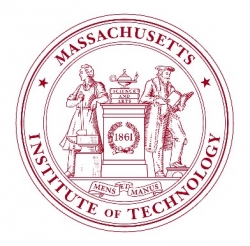 OA Self-Archiving Policy: Massachussetts Institute of Technology (MIT)
OA Self-Archiving Policy: Massachussetts Institute of Technology (MIT) Full list of institutions
Massachussetts Institute of Technology (MIT) (US* institutional-mandate)
http://web.mit.edu/
Institution's/Department's OA Eprint Archives
[growth data] http://dspace.mit.edu/
Institution's/Department's OA Self-Archiving Policy
MIT Faculty Open-Access Policy
Passed by Unanimous of the Faculty, March 18, 2009
The Faculty of the Massachusetts Institute of Technology is committed to disseminating the fruits of its research and scholarship as widely as possible. In keeping with that commitment, the Faculty adopts the following policy: Each Faculty member grants to the Massachusetts Institute of Technology nonexclusive permission to make available his or her scholarly articles and to exercise the copyright in those articles for the purpose of open dissemination. In legal terms, each Faculty member grants to MIT a nonexclusive, irrevocable, paid-up, worldwide license to exercise any and all rights under copyright relating to each of his or her scholarly articles, in any medium, provided that the articles are not sold for a profit, and to authorize others to do the same. The policy will apply to all scholarly articles written while the person is a member of the Faculty except for any articles completed before the adoption of this policy and any articles for which the Faculty member entered into an incompatible licensing or assignment agreement before the adoption of this policy. The Provost or Provost's designate will waive application of the policy for a particular article upon written notification by the author, who informs MIT of the reason.
To assist the Institute in distributing the scholarly articles, as of the date of publication, each Faculty member will make available an electronic copy of his or her final version of the article at no charge to a designated representative of the Provost's Office in appropriate formats (such as PDF) specified by the Provost's Office.
The Provost's Office will make the scholarly article available to the public in an open- access repository. The Office of the Provost, in consultation with the Faculty Committee on the Library System will be responsible for interpreting this policy, resolving disputes concerning its interpretation and application, and recommending changes to the Faculty.
The policy is to take effect immediately; it will be reviewed after five years by the Faculty Policy Committee, with a report presented to the Faculty.
The Faculty calls upon the Faculty Committee on the Library System to develop and monitor a plan for a service or mechanism that would render compliance with the policy as convenient for the faculty as possible.
Monday, March 16. 2009
Harvard's 3rd Green OA Mandate, Planet's 69th: John F. Kennedy School of Government
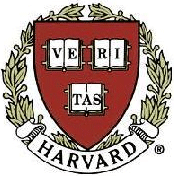 Many thanks to Amy Brand, Program Manager of the Harvard University Library Office for Scientific Communication (OSC), for forwarding this press release announcing the adoption of Harvard's 3rd Green OA Mandate, this time by the John F. Kennedy School of Government.
Many thanks to Amy Brand, Program Manager of the Harvard University Library Office for Scientific Communication (OSC), for forwarding this press release announcing the adoption of Harvard's 3rd Green OA Mandate, this time by the John F. Kennedy School of Government. And yet another well-deserved round of congratulations to Stuart Shieber, Faculty Director of the OSC and the architect of this remarkable (and seemingly unending) series of Green OA mandates from Harvard! (Harvard Medical School looks like it will be next!)
One can only echo what is stated at the end of the press release, which is that although this is the world's 69th Green OA self-archiving mandate, "none are... as far-reaching as the one put forth at Harvard"! (Nor, I might add, is there now any better model for emulation worldwide.) -- S.H.
For Immediate Release: March 16, 2009
Media Contact: Doug Gavel (617) 495-1115 Harvard Kennedy School Communications
Harvard Kennedy School Faculty Votes for Open Access for Scholarly Articles
CAMBRIDGE, MA – The faculty of the John F. Kennedy School of Government at Harvard University voted overwhelmingly last week to make all faculty members’ scholarly articles publically available online at no charge, providing for the widest possible dissemination of faculty research and scholarship. The historic vote adds Harvard Kennedy School to a growing list of faculties at the university to endorse the initiative.
“The scholarly articles authored by Harvard Kennedy School (HKS) faculty members enhance the understanding of many critical and urgent public policy issues, and by embracing open access we seek to maximize the avenues by which these ideas are shared,” said Kennedy School Dean David T. Ellwood. “In the developing world especially, where access to expensive journals is rare, there is a pressing need for access to the latest policy advice and scholarship coming from HKS faculty.”
Under the new policy, HKS will make articles authored by faculty members available in an open access online repository, the contents of which will be searchable through web tools such as Google Scholar. Authors will maintain the right to distribute articles on their own websites, and educators will have the right to freely provide the articles to students, so long as the materials are not used for profit. Faculty members will have the ability to “opt out” of the requirements of the new policy in the case of specific articles in which the policy proves to be incompatible with the obligations under a particular publisher’s contract.
The vote at HKS follows a proposal by a university-wide committee aimed at encouraging wider dissemination of scholarly work. The Faculty of Arts and Sciences (FAS) and faculty at Harvard Law School (HLS) each voted last year to endorse legislation similar to that approved by the HKS faculty.
Stuart M. Shieber, the James O. Welch Jr. and Virginia B. Welch professor of computer science (FAS) and faculty director of the Office for Scholarly Communication, who introduced the legislation last year said, “I am delighted that the faculty of yet another school at Harvard has chosen to embrace open access and that momentum is spreading on campus. Now that the Office for Scholarly Communication is staffed, the DASH (Digital Access to Scholarship at Harvard) repository is in development, and we have experience working with both the Faculty of Arts and Sciences and the Law School, we look forward to working with the Harvard Kennedy School to implement their faculty’s important decision smoothly and efficiently.”
Although other academic institutions have considered similar open access policies, none are considered as far-reaching as the one put forth at Harvard.
Saturday, March 14. 2009
Scaling to Global OA: Parallel Local Green/Gold Is OK, But Gold Alone First, No Way
SUMMARY: Trying to morph incoming institutional non-OA journal-fleet subscriptions into outgoing institutional Gold OA journal-fleet "memberships" is incoherent and cannot scale across journals and institutions; alongside an institutional Green OA mandate, however, it is innocuous: The Green mandates will ensure the real, leveraged, scalable, unstoppable progress toward global OA. Without an institutional Green OA mandate, pursuing local Gold OA "memberships" is not only futile but a retardant on real progress toward global OA, creating instead an illusory local sense of progress that further distracts from and obscures what really needs to be done locally to generate global OA.
 On Thu, Mar 12, 2009 at 8:32 AM, Ivy Anderson (UCoP) (IA) wrote (about University of California’s (UC’s) arrangement with Springer to renew Springer journals on condition that all UC authors’ articles published in Springer journals are made Gold OA and deposited in UC’s Institutional Repository (eScholarship) by Springer):
On Thu, Mar 12, 2009 at 8:32 AM, Ivy Anderson (UCoP) (IA) wrote (about University of California’s (UC’s) arrangement with Springer to renew Springer journals on condition that all UC authors’ articles published in Springer journals are made Gold OA and deposited in UC’s Institutional Repository (eScholarship) by Springer):IA: “Researchers’ apathy toward voluntary self-deposit (except in narrow disciplines) has begun to be viewed by some as an indicator of indifference – if scholars truly cared (the argument goes), the game should be changing much more rapidly, since they themselves are the true owners of the system.”It is not quite accurate to say that researchers are apathetic about self-deposits. Rather, most universities and funders (with the exception of the 68 that have already done so) seem to be apathetic (or, more accurately, narcoleptic) about mandating self-deposit (Green OA).
The attitude of researchers themselves has been surveyed in several international, interdisciplinary studies, and their expressed view is consistent:
"The vast majority of authors (81%)...[in a Key Perspectives] international, cross-disciplinary author study on open access [with] 1296 respondents... would willingly comply with a mandate from their employer or research funder to deposit copies of their articles in an institutional or subject-based repository. A further 13% would comply reluctantly; 5% would not comply with such a mandate." (Swan 2005)

These author attitude-survey outcomes have since been confirmed in actual author behavior by Arthur Sale, whose studies have shown that, if (and only if) deposit is actually mandated, authors do indeed self-deposit, and their deposit rates rise from the global spontaneous (i.e., unmandated) rate of c. 15% to approach 100% within about 2 years of the adoption of the Green OA mandate. The 68 university and funder mandates to date are further confirming this (including NIH’s delayed upgrade to a mandate, with deposits up from <5% before the mandate to 60% within the first year of adoption).
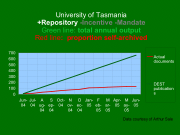
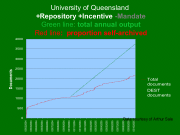
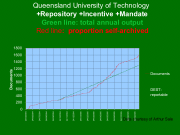
The three main reasons researchers are not self-archiving until it is mandated are (1) worries that it might be illegal, (2) worries that it might put acceptance by their preferred journal at risk, and (3) worries that it might take a lot of time. They need Green OA mandates from their institutions and funders not in order to coerce them to self-archive but in order to embolden them to self-archive, making it official policy that it is not only okay for them to deposit their research article output in their institution's repository, but that it is expected of them, and well worth the few minutes worth of extra keystrokes per paper.
UC renewing Springer’s fleet of 2000 journals may have merits of its own, but apart from that it seems a pricey way to spare UC authors’ a few minutes’ worth of (Green OA) keystrokes.
IA: “The same can be said of author-sponsored gold OA (it is not that hard for an editorial board to resign and take its journal elsewhere – at least it should not be, if there were an obvious somewhere else to go).”But a rather crucial difference is that universities and funders can mandate that their employees and fundees self-deposit, but they cannot mandate that their employees and fundees resign from editiorial boards, nor can they mandate that publishers provide Gold OA, as publishers are neither their employees nor their fundees.
Universities and funders can pay publishers to provide OA, evidently, but it is the wisdom as well as the scalability of that strategy that is at issue here! What looks as if it will work locally for one university, dealing with one publisher, does not scale up to 10,000 universities doing it with the publishers of 25,000 journals, not even for the subset of those journals that each university currently subscribes to: Annual university subscriptions to incoming journals or journal-fleets are fundamentally different from annual university “memberships” in exchange for the publication of outgoing articles: Articles are not published on the basis of an annual journal/publisher quota but on the basis of the individual peer-review outcome, per article, per journal.
IA: “Gold OA journals that require a one-to-one correspondence between ‘membership’ fees and author uptake are beginning to lose library support”Exactly. (And "memberships" would never have had library support in the first place, if their incoherent scaling scenario had been thought through in advance, as above.)
Librarians have been at the vanguard of the Open Access movement from the beginning, often trying heroically, but in vain, to convince the faculty in other disciplines university-wide to deposit, as well as to convince the university itself to mandate deposit. There is now something the Library Faculty can do on its own, to provide an example for the rest of the university, along the lines of Arthur's Sale's suggestion that rather than just waiting for university-wide mandates, "patchwork mandates" should be adopted at the laboratory, department or faculty level. The Library Faculty at Oregon State University has just shown the way, adopting the planet's first Green OA Mandate by a Library Faculty.
IA: “My own conversations and observations lead me to believe that for most authors, the difficulties and uncertainties, rather than the desirability of the outcome, are the main obstacle. But if academic administrators believe that researchers don’t care, then support for institutional repositories, which entail their own costs, will wither in difficult times. Large acts are needed, ones which place a significant amount of research output on an open access footing in ways that capture people’s interest and imagination. Harvard’s mandate is certainly one such act.”You seem to have answered your own question: Mandate Green OA, as Harvard did.
And as to difficult times: We're in them! And there are few lower-cost investments for a university today -- a linux server, a piece of free software, a few days sysad set-up time, and a few days a year sysad maintenance time... plus the adoption of a (free of charge) Green OA self-archiving mandate -- that can generate benefits anywhere near the order of magnitude of the benefits of OA.
IA: “UC’s largescale arrangement with a major publisher is another...”Not unless you can explain how it is to scale from just an ad hoc local arrangement between one university (even one as big as UC) and one (big) fleet-publisher to something that can work for all universities and all journals without dissolving into Escher-drawing incoherence.
IA: “In UC’s arrangement with Springer, UC-authored articles will be deposited in our eScholarship repository. If enough other institutions followed suit (and 3 other European organizations have already preceded us), a large number of papers in those journals will be available in institutional repositories. Some of my librarian colleagues (the ones most skeptical of this experiment) have told me that if that happens, their institutions will cancel, and the system will convulse.”Please explain to me how paying for Gold OA for a university’s own article output, in a particular journal or journal-fleet, via a university subscription/membership for that journal or journal fleet, will induce cancellations of that journal or journal-fleet: Who will cancel? The nonsubscribing institutions? (They have nothing to cancel.) The subscribing institutions? But then what happens to their own authors’ Gold OA output to that journal or journal-fleet? And what happens to their own users’ need for access to that journal or journal-fleet, if the Gold OA is no longer being paid for? And how do you cancel journals when they are still part Gold OA and part not?
My guess is that not even a small fraction of these awkward contingencies has even been considered by UC, let alone thought-through, in this somnambulistic plunge into institutional gilded OA deals. Nor is it in any publisher’s interest, in negotiating a Big Deal like this, to awaken their client to any of these troublesome complications (since complications concern how that client is to deal with that publisher's competitors, further down the road, once this particular “Big Deal” is no longer the only deal in town...).
Just to clarify: My beef is not at all with Springer, for trying to make the best deal they can. Springer is fully Green on immediate, unembargoed self-archiving by their authors. That means Springer is squarely on the Side of the Angels, insofar as OA is concerned. My beef is with the naivete of the universities who keep somnambulating toward the Escherian glitter without first grasping the green that is within their reach: Mandate Green OA and then make whatever subscription/membership deal you like and can afford. Just don't go for the Gold without first grasping the Green!
Stevan Harnad
American Scientist Open Access Forum
Friday, March 13. 2009
Planet's 1st Library Faculty Green OA Mandate: 7th US Mandate, 68th Worldwide
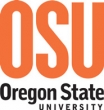 From Peter Suber's OA News: This is the planet's first Green OA Mandate by a Library Faculty. Librarians have been at the vanguard of the Open Access movement, often trying heroically, but in vain, to convince other faculty university-wide to deposit, as well as to convince the university to mandate deposit. Here is something they can do on their own, to provide an example and show the way: mandate deposit within their own department or faculty. (This is also an instance if Arthur's Sale's suggestion that "patchwork mandates" be adopted at the laboratory, department or faculty level, rather than waiting for university-wide mandates)
From Peter Suber's OA News: This is the planet's first Green OA Mandate by a Library Faculty. Librarians have been at the vanguard of the Open Access movement, often trying heroically, but in vain, to convince other faculty university-wide to deposit, as well as to convince the university to mandate deposit. Here is something they can do on their own, to provide an example and show the way: mandate deposit within their own department or faculty. (This is also an instance if Arthur's Sale's suggestion that "patchwork mandates" be adopted at the laboratory, department or faculty level, rather than waiting for university-wide mandates)The OSU mandate is even the optimal ID/OA (DDR) mandate, as Peter notes below. To the Library Faculty at Oregon State University, who have now put their own work where their heart (and hard work) is, kudos! -- SH
Comment [from Peter Suber]. Kudos to the OSU Library Faculty Association (LFA) for this strong policy. I applaud the mandatory language, the dual deposit-release strategy (or what Stevan Harnad calls immediate deposit / optional access), and the clarity in making waivers apply only to OA, not to deposits. I like the way the LFA will help faculty deposit their articles as well as obtain better terms from publishers. You can classify this as a "faculty vote" policy, as opposed to an administrative policy, and as a departmental rather than university-wide policy. Now that the library faculty have taken the lead, it's time for other departments and divisions of OSU, already operating under a policy to encourage self-archiving, to strengthen their policy as well.
An OA mandate for the OSU library faculty
The library faculty at Oregon State University have adopted an OA mandate (text and guidelines).
From today's announcement:
On March 6, library faculty adopted a policy that requires deposit of final published versions of scholarly works in ScholarsArchive@OSU, the libraries' institutional repository. This is the first open access mandate adopted by a library faculty in the United States, according to Michael Boock, head of digital access services for OSU Libraries.
Since 2004, OSU Libraries has worked to collect the university’s scholarship in digital form to ensure greater accessibility and long-term preservation of the scholarship. ScholarsArchive@OSU, which recently ranked fourth among U.S. digital repositories, contains dissertations, theses, a wide variety of university technical reports, working papers and series and increasingly, published articles, papers and presentations. The current contributions come from across campus, and are contributed on a voluntary basis.
The new policy means that the 42 library faculty will automatically contribute all of their scholarship to the archive, which will not be the case for faculty in other departments, who can continue to contribute on a voluntary basis.
No later than the date of publication or distribution, library faculty members will deposit an electronic copy of the final published version of their works in an appropriate format (such as PDF) to ScholarsArchive@OSU. The policy applies to articles, conference papers and proceedings, substantial presentations and internal reports of interest to a broader audience that are authored or co-authored by library faculty members.
“As faculty members at Oregon’s land grant university the library faculty believes they have a responsibility to share their expertise and research with the public,” Boock said. “As librarians, they believe in the widest possible access to information and its long-term preservation. The policy they’ve adopted supports these goals.”From the policy text:
...The policy will apply to all scholarly works authored or co-authored while a faculty member of the University Libraries, beginning with works created after March 2009....
When a publisher is involved who will not agree to the terms of this policy as stated in the Science Commons Access-Reuse Addendum, the University Librarian or the University Librarian’s designate will waive application of the policy upon written request from faculty. When a waiver is granted, faculty are encouraged to deposit whatever version of the article the publisher allows (e.g. pre or post-print)....
The Coordinator [who also grants waivers] may assist the author in getting terms from the publisher that are most agreeable to the author.
From the policy guidelines:
[The Library Faculty Association] recommends that authors select the Access/Reuse agreement type using the Science Commons Scholar’s Copyright Addendum Engine....
Posted in OA News by Peter Suber at 3/13/2009 05:13:00 PM
(Page 1 of 3, totaling 21 entries)
» next page
EnablingOpenScholarship (EOS)
Quicksearch
Syndicate This Blog
Materials You Are Invited To Use To Promote OA Self-Archiving:
Videos:
audio WOS
Wizards of OA -
audio U Indiana
Scientometrics -
The American Scientist Open Access Forum has been chronicling and often directing the course of progress in providing Open Access to Universities' Peer-Reviewed Research Articles since its inception in the US in 1998 by the American Scientist, published by the Sigma Xi Society.
The American Scientist Open Access Forum has been chronicling and often directing the course of progress in providing Open Access to Universities' Peer-Reviewed Research Articles since its inception in the US in 1998 by the American Scientist, published by the Sigma Xi Society.
The Forum is largely for policy-makers at universities, research institutions and research funding agencies worldwide who are interested in institutional Open Acess Provision policy. (It is not a general discussion group for serials, pricing or publishing issues: it is specifically focussed on institutional Open Acess policy.)
You can sign on to the Forum here.
Archives
Calendar
Categories
Blog Administration
Statistics
Last entry: 2018-09-14 13:27
1129 entries written
238 comments have been made


